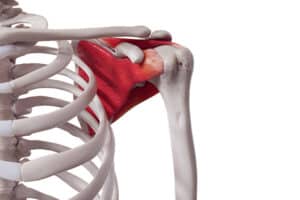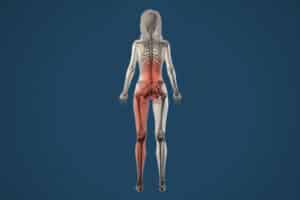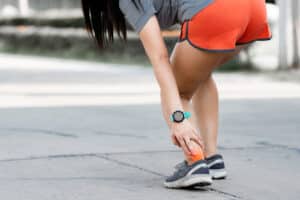Spring has sprung and summer is peeking its head out around the corner. If you’re an avid runner, we know you’re eager to lace up those running shoes and start hitting the local tracks, trails, pathways, and seawalls. Perhaps you’re also keen to take on a marathon or two to relax the mind and burn some calories.
However, being a runner can take its toll on the body. Many runners can become sidelined due to chronic pain and/or an underlying condition that can damper the running experience. Luckily, at Nova Active Rehab, we’ve got some hope for you. Physio can help to prevent and aid you in a swift recovery from injuries. There are even a few other interesting benefits of physiotherapy for runners you may not know about.
We Can Offer Personalized Advice
A physiotherapist has your back, or in this case, your entire body. If you’re wanting to start a running program or race a marathon as a future goal, it can put stress on your muscles and joints, which can cause injury.
Our physiotherapist at Nova Active Rehab can offer you personalized advice based on what your individual needs are, recommending the best footwear and designing an exercise program just for you, to help strengthen your muscles and improve your overall performance. If you’re new to the sport of running, we can help get you started and work toward your goals.
Treat and Prevent Common Running Injuries
Physiotherapists can assess your range of motion, muscle strength, and overall flexibility, which play a key role in sports performance and preventing injury as well as analyze your running biomechanics which identify potential risk factors that can lead to injury.
No matter if you’re new to running or have had past injury, knowing these things about your health and the maintenance of your body can make a difference in terms of your recovery time in the event an injury does take place.
Common injuries for runners can include the following:
- Sprains and strains
- Joint injuries (knee, shoulder, ankle)
- Muscle injuries
- Dislocations
- Stress Fractures – Acute fracture typically occurs from a fall. Stress fracture develops from growing strain on the bone, commonly occurring in the foot or in the shins.
- Achilles Tendinopathy – The result of overuse on the Achilles heel, caused by repetitive energy storage and release with excessive compression.
- Pain along the shin bone
- Plantar Fasciitis
- Patellofemoral Stress Syndrome (PFSS) – Pain in the front part of the knee that happens due to abnormal motion or pressure between the kneecap and thighbone
- Piriformis Syndrome – A condition in which the piriformis muscle (located in the buttock region) spasms causing pain. It can also irritate the sciatic nerve causing pain, numbness and tingling along the back of the leg into the foot.
- Hamstring Strain – Chronic aches and tightness force you to slow and shorten your running stride. The pain becomes sharper as the condition progresses, and you may stop mid-run. Further attempt at long strides or overextending your legs can strain your back thigh muscles.
There are also many injuries that occur when your muscles, tendons, tissues, and ligaments are not flexible or strong enough to manage the strain you put on them during the running season. Physiotherapy can treat common runner ailments and provide preventative exercises and routines to keep you in good running shape.
Improving Balance
Did you know that physiotherapy can help you with your balance as well? Balance refers to the neuromuscular skill of activating the muscles and adapting your body position to keep yourself upright. It’s not only a required skill for running, it’s also often taken for granted.
Balance is directly related to greater running speed, according to research. When you have better awareness of your foot, ankle, calves, and all-around lower extremity positioning relative to the ground and other obstacles, the likelihood of sprain-based injury is reduced.
Physiotherapy helps with improving your balance (and consequently running performance) by improving your gait and working to improve your core muscles.
Keep Running Longer
No, we don’t mean the literal kilometres you travel during your run, although physiotherapy can help you run longer distances. We’re referring to lifetime longevity in this case. You don’t have to be a young person to be an avid runner, and there are many known senior marathon runners that can attest to that.
Physiotherapy has many benefits for children, teenagers, and seniors. No matter your age, we’ll keep you in top running shape if you’re willing to keep going.
Better Breathing
Don’t forget to breathe! Breathing techniques help with many things in many ways. In this case, proper breathing techniques will help you run better, as it’s essential to posture and core stability. Though you don’t visit your physiotherapy for respiratory health, there is a connection between physical fitness and proper breathing.
Physiotherapists are body movement experts, and considering breathing is essentially the fuel for your movement, the influence of breathing cannot be overlooked. You will regularly improve your breathing with improving your core fitness and better learn to control your body movement and function through physiotherapy, which better assists you on future runs.
Need Physio? Why Not Come and See Us?
If you need some extra guidance in preventing running injuries, would like to create your own physiotherapy program, or you need some rehab advice through a physiotherapy session, come and see us at Nova Active Rehab.
You can book a session by:
- Using our contact form
- Calling us at 604-783-8300
- Emailing us at info@novaactiverehab.com
We also offer online physiotherapy sessions with our certified physiotherapist, and with personal training, we can create a personalized workout just for you.
Whatever your needs may be, you can lace up those running shoes with confidence and ease knowing you’ve got a reliable active rehab team by your side. Don’t hesitate to contact us with any questions or concerns you may have about our physio services.








